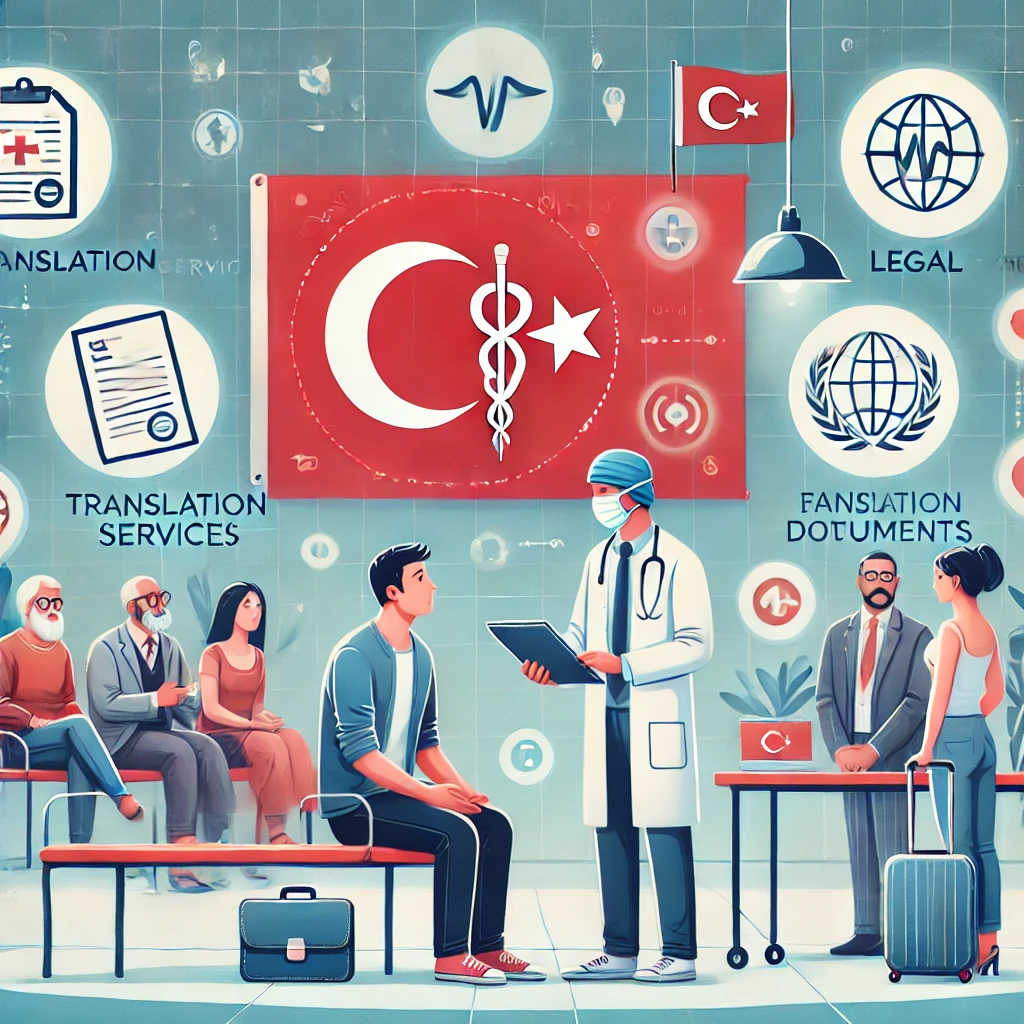Introduction
Turkey’s healthcare system has become a point of attraction for many foreigners, particularly due to the country’s advancements in medical tourism, affordable treatment options, and government policies promoting public health. However, foreign residents, asylum seekers, and medical tourists often encounter a range of legal and administrative challenges when accessing healthcare services. This article explores the legal framework governing foreigners’ access to healthcare, highlights the common challenges they face, and provides recommendations for improving access to healthcare in Turkey.
I. Legal Framework for Foreigners’ Access to Healthcare in Turkey
1. Public Healthcare Access for Residents
Foreigners with residence permits are eligible to enroll in the Turkish Social Security Institution (SGK), which provides access to public healthcare services. Enrollment typically requires:
- A valid residence permit,
- Proof of continuous residence for one year, and
- Payment of monthly SGK premiums.
Foreigners not enrolled in SGK must rely on private health insurance or out-of-pocket payments for medical treatment.
2. Healthcare for Asylum Seekers and Refugees
Asylum seekers and refugees are eligible for free healthcare under Turkey’s Temporary Protection Regulation, in accordance with international agreements and the 1951 Refugee Convention. Healthcare is provided primarily through public hospitals and Migrant Health Centers.
3. Medical Tourism and Short-Term Visitors
Medical tourists and foreigners on short-term visits can access healthcare through private hospitals. However, they are not covered by public healthcare schemes and must rely on private insurance policies or personal funds.
II. Common Legal and Administrative Challenges Faced by Foreigners
1. Limited Access to Public Healthcare Services
- Foreigners must meet specific residency criteria to enroll in SGK, which excludes many newcomers and temporary residents.
- Asylum seekers and refugees often face regional disparities in accessing healthcare services, with remote areas providing fewer medical facilities.
2. Language Barriers and Communication Issues
- Foreign patients frequently encounter language barriers when seeking treatment, as many public healthcare providers do not offer translation services.
- Miscommunication between healthcare professionals and foreign patients can lead to delayed or inadequate treatment.
3. Discrimination and Unequal Treatment
- Some foreign patients report discriminatory practices in public hospitals, including longer waiting times or refusal of services.
- Refugees and asylum seekers, in particular, may face prejudice or unequal treatment compared to Turkish citizens.
4. Administrative Delays and Bureaucratic Obstacles
- Foreigners often experience delays in SGK enrollment due to bureaucratic inefficiencies or lack of proper documentation.
- Refugees may encounter challenges in obtaining necessary referral letters for specialized medical care.
5. High Costs of Private Healthcare
- Foreigners who are ineligible for public healthcare must turn to private hospitals, where costs are significantly higher.
- Medical tourists, while benefiting from advanced medical services, sometimes face unexpected fees and unregulated pricing.
III. Legal Protections and Solutions
1. Patient Rights under Turkish Law
- Turkey’s Patient Rights Regulation ensures that all individuals, including foreigners, are entitled to equal access to healthcare and dignified treatment.
- Foreign patients have the right to informed consent and the ability to file complaints in case of negligence or discrimination.
2. Use of Translation Services
- The Turkish government encourages hospitals to provide translation services, especially for patients who speak languages commonly used among refugees and tourists.
- Collaboration with NGOs and community organizations can improve communication between healthcare providers and foreign patients.
3. Legal Recourse for Discrimination
- Foreigners can report cases of discrimination or denial of healthcare services to the Provincial Health Directorates or the Ombudsman Institution.
- Lawsuits can be filed under Turkish civil law to seek compensation for harm resulting from discrimination or negligence.
4. Simplifying SGK Enrollment and Documentation Requirements
- Streamlining the SGK registration process for foreign residents can reduce delays and administrative burdens.
- Introducing online platforms for healthcare applications can improve access for foreigners.
IV. Recommendations for Improving Healthcare Access
- Expanding Access to Public Healthcare:
- Reducing the residency requirements for SGK enrollment would enable more foreigners to benefit from public healthcare services.
- Establishing Multilingual Support Systems:
- Hospitals should provide multilingual healthcare personnel or remote translation services to address language barriers.
- Raising Awareness of Patient Rights:
- Public campaigns targeting foreign residents and refugees can raise awareness of their healthcare rights and the complaint mechanisms available to them.
- Regulating Private Healthcare Costs:
- The government can introduce price regulation policies for private hospitals to prevent overcharging of foreign patients.
- Strengthening Collaboration with NGOs:
- Partnering with international organizations and NGOs can enhance healthcare access for vulnerable groups, such as refugees and asylum seekers.
V. Conclusion
While Turkey offers a well-developed healthcare system, foreigners face a variety of legal and administrative challenges in accessing medical services. Issues such as discrimination, language barriers, high costs, and bureaucratic delays hinder effective healthcare delivery to foreign residents, asylum seekers, and medical tourists. However, legal protections and institutional reforms can improve healthcare access and ensure equitable treatment for all individuals.
With greater awareness of patient rights, improved administrative processes, and collaborative efforts, Turkey can enhance its healthcare system to meet the needs of its increasingly diverse population and maintain its reputation as a hub for medical tourism and international healthcare services.

Yanıt yok